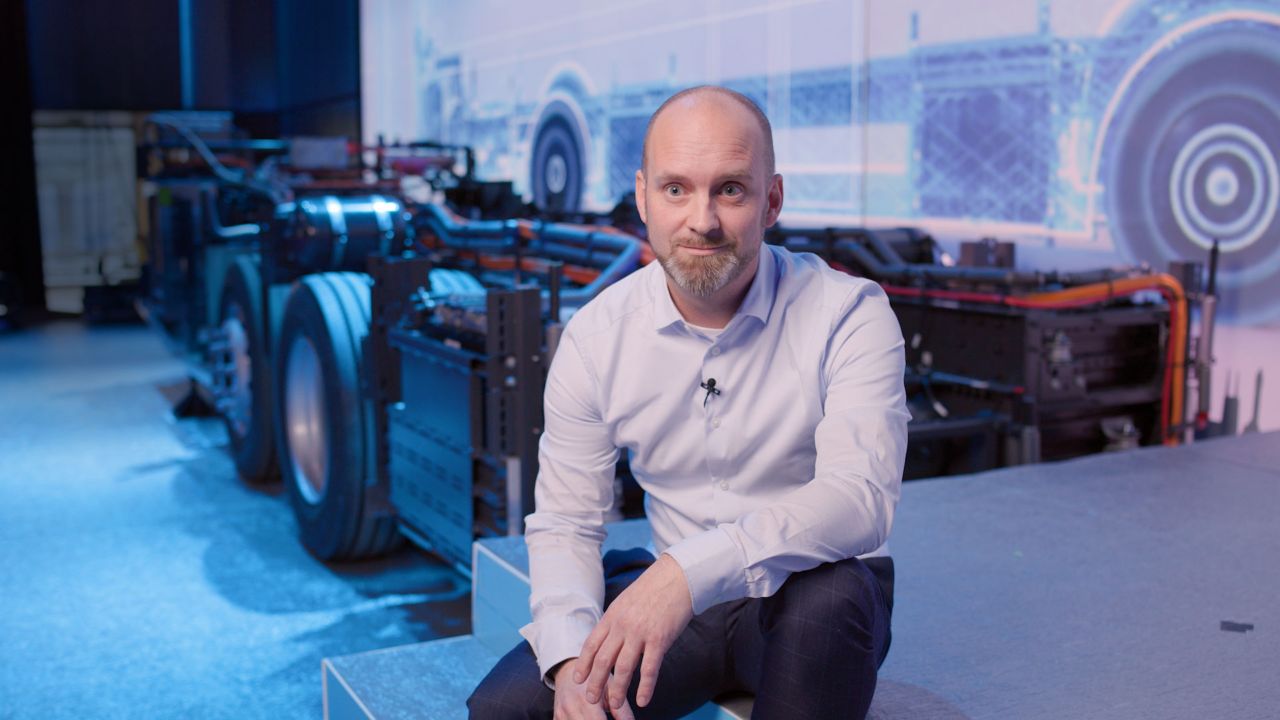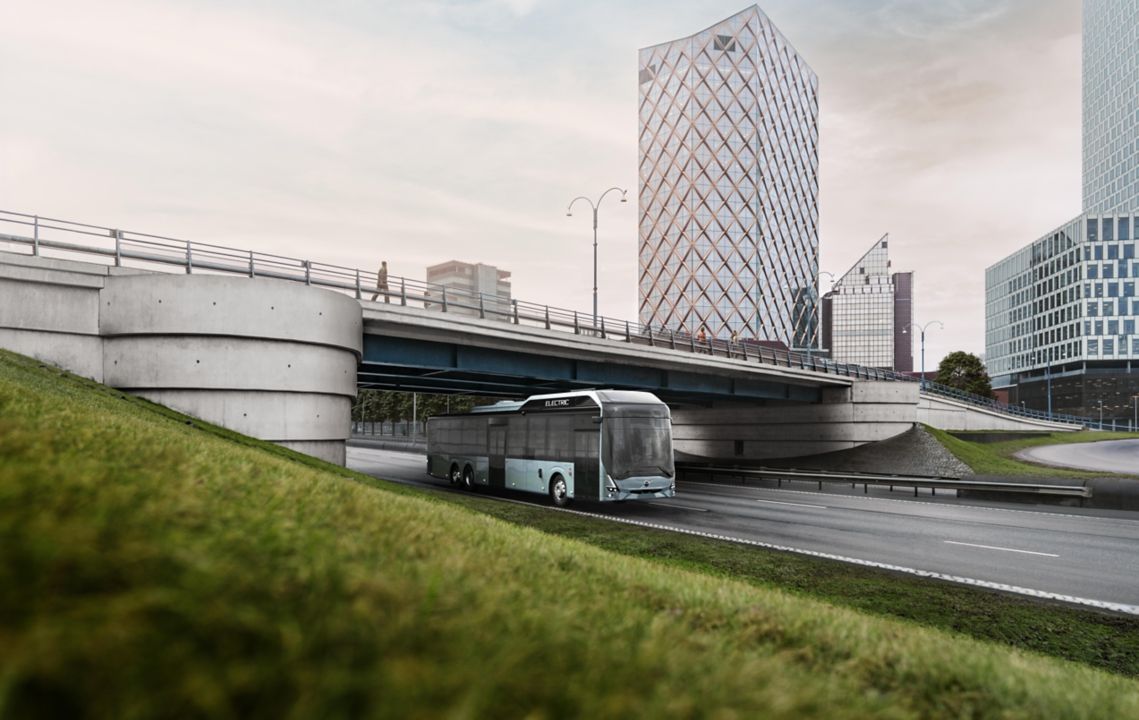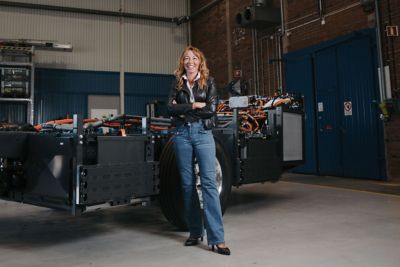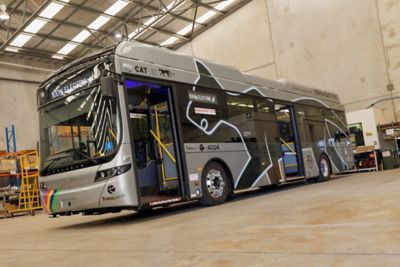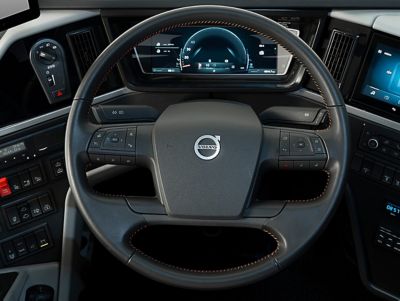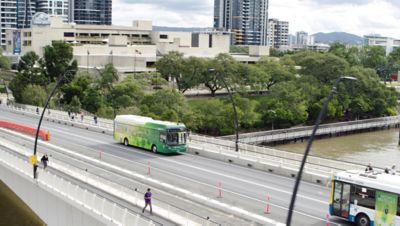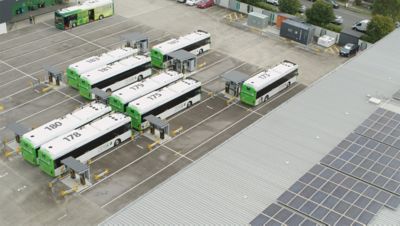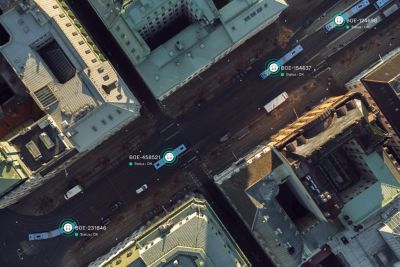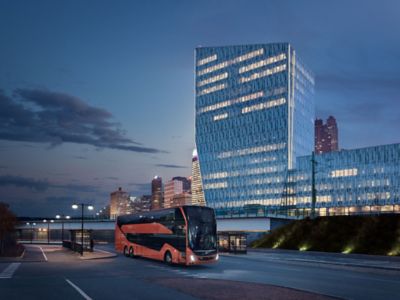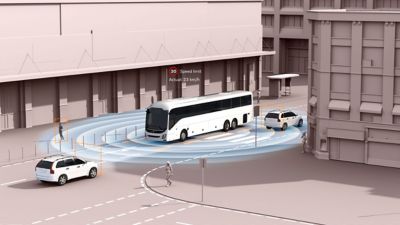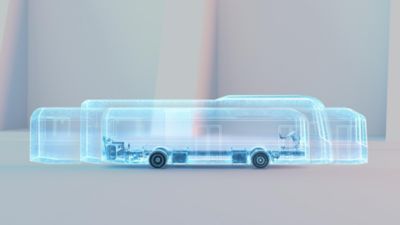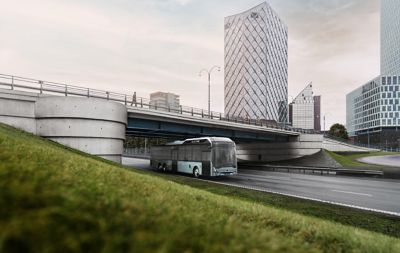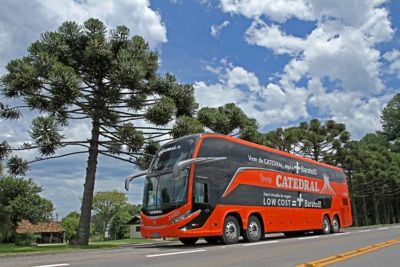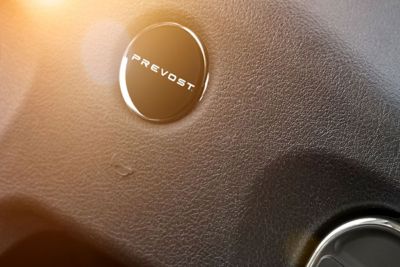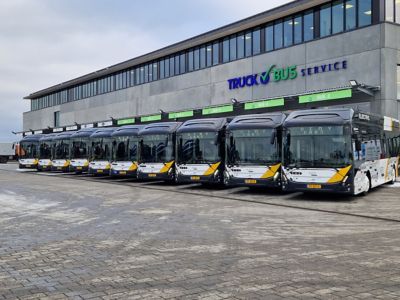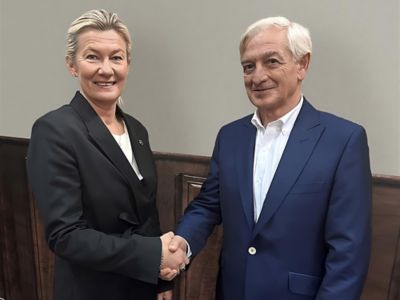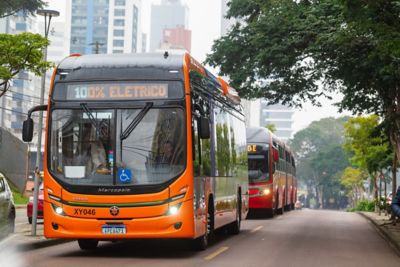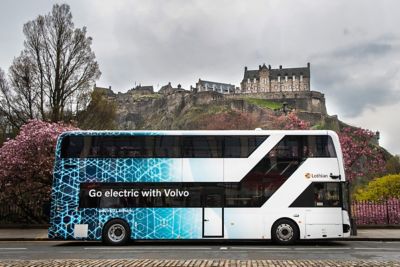News & stories
Welcome to Volvo Buses news & stories. Here you will find our latest press releases as well as interesting stories.
Featured
E-mobility
536 matches
1 of
27
-
Press release
2024-10-22
Volvo Buses expands its electric bus offer for European customers
Volvo Buses is now launching a broader electric offer for customers in Europe. With the completely new Volvo 8900 Electric and an upgraded Volvo 7900 Electric – together with the Volvo BZL and Volvo BZR platforms – Volvo Buses can offer sustainable public transport solutions for city, intercity and commuter services.
-
Story
2024-09-03
VISTA raises the bar for Volvo Buses’ service
Volvo Buses wants to offer its customers the best service. Through VISTA, the world’s biggest competition for service technicians at Volvo Buses and Volvo Trucks demonstrate and sharpen their skills. On September 9–12, the best teams compete in the finals in Volvo’s hometown, Gothenburg.
-
Press release
2024-08-29
First of 18 new electric Volvo buses for Western Australia now completed
The first Volvo BZL Electric bus in an initial order of 18 electric buses, has now been completed. The order is part of an AUD$250 million joint initiative between the Western Australian state government and Australian federal government, to support the state’s transition to zero-emission public transport.
-
Story
2024-08-26
How we designed our market-leading, digital driver’s place
Our driver’s environment, featuring an instrument cluster with the latest digital technology, is included in the global coach platform, Volvo B13R. Dan Frykholm, Head of Design, and Philip Gates, UX Designer, explain the new functions and how user experience was an integral part of the design process.
-
Sustainability
2024-07-10
How will public transport help Brisbane achieve a climate-positive Olympics
In 2032, Brisbane has pledged to host a climate-positive Olympic and Paralympic Games. The ambitious target is already transforming the whole city, not least its public transport.
-
Sustainability
2024-07-10
How Keolis Downer is leading Brisbane’s charge towards sustainable public transport
As Brisbane commits to zero-emissions public transport in the lead up to the 2032 Olympic Games, electric buses are already becoming an increasingly common sight in the city. For operators Keolis Downer, being at the forefront of this transition has been challenging yet rewarding.
-
Press release
2024-07-09
Volvo Buses establishes partnerships with Optibus and Stoneridge
The purpose of the new partnerships is to provide Volvo Buses’ customers with easy access to innovative, new connected services and offer integrated digital solutions for improved efficiency. The aim is to make Optibus’ public transport management software and Stoneridge’s data and artificial intelligence fuel advice solution available to Volvo Buses’ customers in selected markets in pilot mode during 2024.
-
Sustainability
2024-06-25
Volvo Buses to use AI to decarbonize supply chains
Volvo Buses has high ambitions when it comes to sustainability, and by 2040, it aims to have a fully decarbonized supply chain. To help achieve this, Volvo Buses and its suppliers will utilize the unique capabilities of artificial intelligence (AI).
-
Press release
2024-06-04
Volvo Buses receives order for 31 Volvo 9700 double deckers
Public transport operator Keolis has ordered 31 Volvo 9700 double decker buses to be delivered to Gothenburg, Sweden, by the summer of 2025. 26 of the buses will operate in express traffic in the city and five will run on an intercity route from nearby town Borås.
-
Story
2024-05-07
How Volvo Buses works with HMI and safety
Human Machine Interface (HMI) plays a crucial role in Volvo Buses’ safety systems. Acting System Owner for Driver Environment Ulrika Larborn explains how it creates a seamless, intuitive interaction with the driver for safer bus operations.
-
Press release
2024-04-23
Volvo Buses announces global launch of third-generation active safety systems – improving safety for vulnerable road users
Volvo Buses is launching new and updated active safety systems that help drivers to drive safely and avoid situations that could result in accidents. The active safety systems include several features with a special focus on the protection of vulnerable road users such as cyclists and pedestrians. The safety systems exceed the new EU regulations, as well as the legal requirements of most non-EU countries.
-
Story
2024-04-09
“The Volvo BZR Electric is a platform for the future”
The Volvo BZR Electric is much more than just a new product. Based on the popular and robust B8R universal chassis, with well-proven electric driveline and state-of-the-art batteries from the Volvo Group, the platform enables the electrification of new segments worldwide. Here, Volvo Buses' Fredrik Björn explains the recipe for success.
-
Press release
2024-03-21
Volvo Buses launches new global electromobility platform
Volvo Buses extends its worldwide electromobility offer to include operations outside and between cities. The new Volvo BZR Electric is a global platform for city, intercity, and commuter operations. It is offered in several configurations to maximize the possibilities for efficient, sustainable, and profitable traffic for operators around the world.
-
Press release
2024-03-21
Volvo Buses launches Volvo 8900 Electric intercity bus
Volvo Buses extends its European electromobility offer to include operations outside and between cities. The new Volvo 8900 Electric is an electric low-entry bus for city, intercity, and commuter operations. It is offered in both two- and three-axle configurations, to maximize the possibilities for efficient, sustainable, and profitable traffic for operators. The first versions of the Volvo 8900 Electric will be available in selected European markets during 2025.
-
Press release
2024-02-26
Volvo Buses to deliver 152 Euro 6 coaches to Brazil
Viação Catedral, one of the largest passenger transport operators in Brazil, is renewing its fleet and has ordered 152 Volvo B13R Euro 6 double decker coaches for operation on long-distance routes. Almost all of the coaches feature Marcopolo bodies.
-
Press release
2023-12-19
Historic contract for Prevost - largest order ever of coaches to New York State
Prevost, a company in the Volvo Group and one of North America's leading motorcoach manufacturers, is proud to announce the largest contract in its history with a major order from the Metropolitan Transportation Authority (MTA) of New York State. The MTA has awarded Prevost a contract to manufacture 381 coaches, including a firm order for 250 coaches to be delivered between 2025 and 2026, as well as options to purchase an additional 131 coaches.
-
Press release
2023-12-07
Volvo Buses secures first order for Volvo 7900 Electric buses with bodies built by MCV
Luxembourg operator DEMY SCHANDELER S.àr.l. (Demy Cars) has ordered 15 Volvo 7900 Electric buses to operate in intercity traffic. It is the first order for Volvo electric buses with Volvo 7900 Electric bodies built by MCV. The order shows confidence in Volvo Buses’ new partnership with bodybuilder MCV, with the buses set to be delivered in spring 2025.
-
Press release
2023-10-25
Volvo Buses confirms agreement and strengthens partnership with bodybuilder Sunsundegui
Volvo Buses has now signed an agreement with leading bodybuilder Sunsundegui to manufacture its Volvo 9700 and Volvo 9900 bodies under license. Production is expected to commence in 2024, with the first buses hitting the European market in 2025.
-
Press release
2023-10-19
Volvo Buses continues its global electromobility journey in Latin America
Volvo Buses has begun the first demonstration of its 100% electric city bus in real operation in Latin America. The Volvo BZL Electric will run on two routes in Curitiba, Brazil, which connect dozens of neighbourhoods, transporting 135,000 passengers daily and integrating with the city's BRT in several terminals. Further demonstrations of the Volvo BZL Electric will follow in São Paulo, Bogotá, Colombia and Santiago, Chile.
-
Press release
2023-10-05
Volvo Buses confirms order for 50 electric buses for Edinburgh, Scotland – further electrifying the UK
Volvo Buses has secured an order for 50 Volvo BZL Electric double deck buses from Edinburgh-based Lothian Buses, the UK’s largest municipal bus company. Three major UK orders have now been confirmed this year. The total number of Volvo electric buses for the UK, including all orders to date and those set to be delivered in the near future, is now over 500.
536 matches
1 of
27




